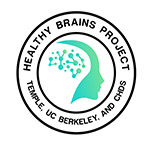Healthy Brains Project
In collaboration with investigators at Temple University and the Child Health and Development Studies (CHDS) in Berkeley, we are investigating influences on brain health throughout development, including early life and prenatal development. This is a new follow-up study of children whose mothers enrolled in the CHDS in the 1960s. The CHDS enrolled over 15,000 pregnant women between 1959 and 1967 at Kaiser Oakland, and this cohort of mothers and offspring have been followed for 60 years. Our follow-up study is examining predictors of overall health, cognitive functioning, and brain structure and function using a multi-method approach (interviews, multi-modal brain imaging, cognitive testing, emotion and social functioning). We are investigating how early developmental variables might influence clinical, cognitive, and neural outcomes in the now middle-age offspring.
The Nature of Pleasure and Anhedonia in Schizophrenia
Anhedonia refers to diminished capacity to experience pleasure, and it is a common clinical feature of depression and schizophrenia. In schizophrenia, we have found that the anhedonic deficit lies in anticipatory processes. We have also found that elevated levels of experienced negative affect in schizophrenia may interfere with the experience or anticipation of pleasure.
We have also investigated social motivation and pleasure, asking questions including: What are the correlates and consequences of anticipatory social pleasure? What are the barriers that interfere with social interactions and pleasure for people with schizophrenia? How does social exclusion influence anhedonia?
Our lab has also found that people with schizophrenia do not predict as much enjoyment from future activities as do people without schizophrenia nor do they generally feel positive emotions as strongly when thinking about the future.
In a series of studies, we examined maintenance as well as anticipation of emotional responses among people with and without schizophrenia. The maintenance of an emotional response is critical for guiding future behavior and decision making. Data from our lab indicate that people with schizophrenia have no trouble responding to emotional stimuli in-the-moment, as reflected by self-report, emotion modulation of the startle response, and brain activation. However, people with schizophrenia appear to have difficulty maintaining an emotional response once evocative stimuli are removed from view.
Assessing and Treating Negative Symptoms in Schizophrenia
Negative symptoms in schizophrenia (diminished expression, diminished social motivation, anhedonia) remain a huge unmet treatment need. Our lab was part of the Collaboration to Advance Negative Symptom Assessment in Schizophrenia (CANSAS), along with Jack Blanchard, PhD, Raquel Gur, MD, and William Horan, PhD. We developed a clinical rating scale, the Clinical Assessment Interview Scale (CAINS) to better assess these symptoms.
We developed and piloted two different psychosocial treatments that target mechanisms contributing to negative symptoms. One is a skills based group treatment called Awareness and Coping with Emotion in Schizophrenia (ACES). Another is a meditation focused treatment that was developed in collaboration with David Penn, Ph.D. and Barbara Fredrickson, Ph.D. of the University of North Carolina, Chapel Hill.